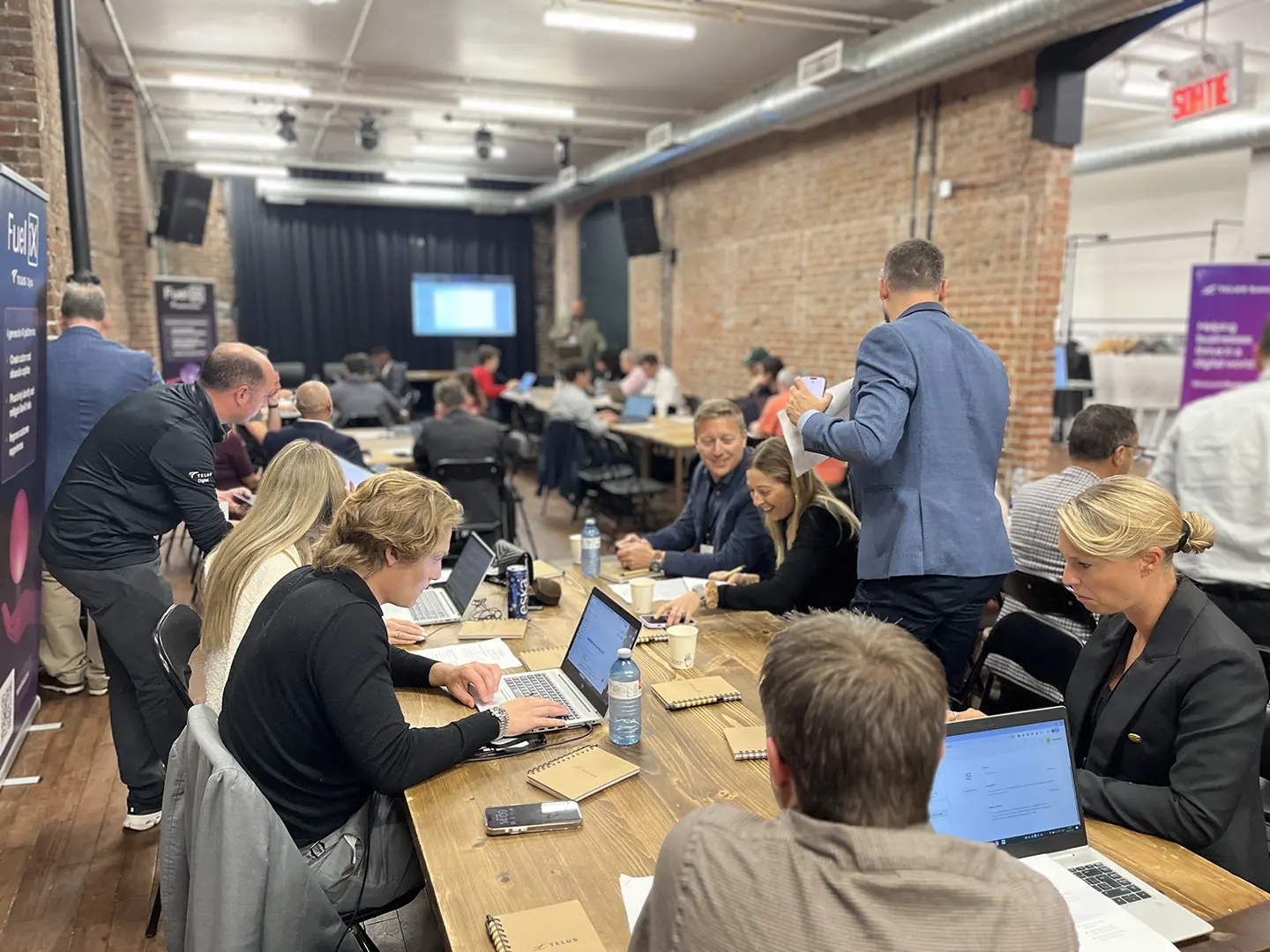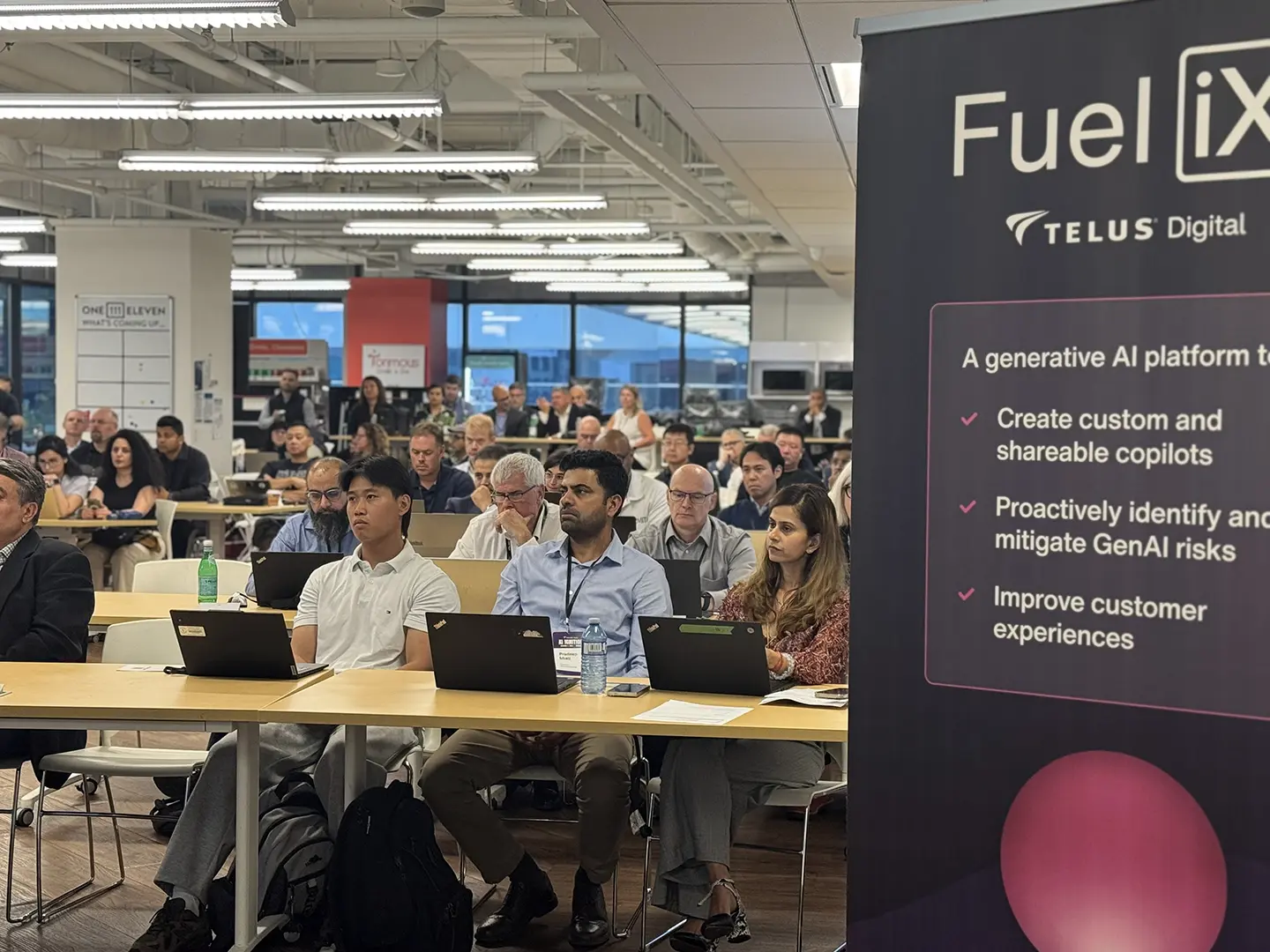Many businesses feel stuck when it comes to implementing AI. With new advancements emerging daily, it’s easy to fall into analysis paralysis. That’s why we brought business leaders together at Fuel iX’s recent AI Ignition Workshops in Montreal and Toronto. To cut through the noise with practical education and real-world guidance.

Understanding what's actually changing
While headlines throw around terms like "AI agents" and "model context protocols," our Toronto and Montreal AI Ignition workshops focused on helping leaders understand what these developments actually mean for their businesses—and why some matter more than others.
We broke down the technology landscape into three digestible concepts:
1. Reasoning models: A new way to think about AI
Think about how you solve complex problems. Given five seconds, you'll provide a quick answer. Given two days, you'll deliver something far more thoughtful. The latest AI models now mirror this human approach—they "think" before responding, considering multiple angles and refining their outputs. Understanding this shift helps leaders set realistic expectations and identify where these tools can truly add value.
2. The last mile requires expertise (and that's okay)
The final mile of GenAI success isn't just technology, it's human expertise. While anyone can experiment with packaged AI tools and see some benefit, achieving meaningful impact requires people who understand both the technology and your business context. This isn't a barrier; it's an opportunity to build lasting capability within your organization.
"The last mile of generative AI success is human expertise. You can get started with packaged tools and see some benefit, but as you start to do more sophisticated things and try to have a bigger impact, having really smart people will be required," said Bret Kinsella, GM of Fuel iX, SVP TELUS Digital
3. Flexibility keeps your options open
No single AI model excels at everything. We helped leaders understand why building flexible architectures, ones that allow you to choose the right tool for each use case and swap models as needed, protects your investment and keeps you adaptable as the technology evolves.

Four practical principles to guide your journey
Bret Kinsella shared four foundational principles that help demystify AI implementation:

1. Go broad, define narrow
The most successful implementations start by exploring widely, testing multiple use cases across departments, then diving deep on the highest-impact opportunities. This approach reduces the risk of missing transformative applications while ensuring focused execution.
2. People first, always
Fuel iX's mission is to elevate human capability, collaboration and ingenuity using AI. Automation isn't about removing humans from processes; it's about making them more efficient and effective. AI isn't replacing people; it's augmenting their capabilities.
3. Start small, think big
You don't need to re-engineer entire processes to see value. By atomizing complex workflows and applying AI to individual components, organizations are achieving meaningful benefits today while building toward comprehensive transformation tomorrow.
4. Ensure safety and security from day one
Most organizations are doing almost nothing to ensure AI safety and security. This isn't just risky—it's potentially catastrophic. One security breach or compliance failure can derail entire AI initiatives. The good news? The tools to implement proper governance, monitoring, and security protocols now exist. Organizations that establish these foundations early will move faster and more confidently than those that treat safety as an afterthought.
"Most people are doing almost nothing on AI safety and security. People don't even have monitoring or other basic protections in place. You really need to do this, because while there are so many benefits to AI, one security incident can take down your whole project," said Kinsella.
Expert insights
At every AI Ignition event, Fuel iX hosts an expert panel discussion, moderated by Bret Kinsella. Toronto’s panel featured Jesslyn Dymond, Director of AI Governance & Data Ethics at TELUS, Jesse Albiston, Co-founder at Bitstrapped and Ivey Chiu Sr Strategy Manager - AI Research Partnerships at TELUS. Watch the highlights below and look out for the whole panel discussion in the coming weeks on YouTube.
The road ahead
The path forward with AI isn't about having all the answers today. Leading organizations are learning, experimenting and establishing smart governance practices now. The AI Ignition series exists to help you do the same, turning complexity into clarity, one practical insight at a time.
Read about our Vancouver and Calgary AI Ignition workshops.
Next stop: Ottawa, ON, on October 30, 2025, at the National Arts Centre!




